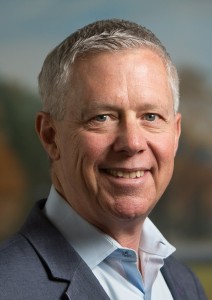
The state is under-building by tens of thousands the new houses and apartments each year that are needed to meet demand. As a result, home prices and rents are soaring and commutes are lengthening—especially in coastal metropolitan regions.
If a fire or flood or earthquake had wiped out a thousand or five thousand homes and apartments, the Governor would have rightly declared a state of emergency with all hands on deck.
Thankfully, Californians are not suffering that direct human tragedy. But political gridlock in Sacramento is abetting a similar calamity—the impoverishment of Californians forced to pay dearly for housing and to travel ever further to get to work.
Reform Proposed
To his credit, Governor Brown proposed a modest but important reform to spur housing construction in urban areas. As part of his May budget revision, the Governor called for removing a redundant and time-consuming California Environmental Quality Act (CEQA) review, allowing cities to administratively approve housing that already meets all local planning, building and zoning regulations. Projects must also set aside certain numbers of new homes for middle- and lower-income residents to qualify for streamlined approval.
Importantly, the measure did not remove CEQA review of new housing development in suburban or rural areas, or of developments that are not consistent with established local planning and zoning.
Nonetheless, even this humble attempt to expedite new housing in the urban core was set upon by CEQA litigation advocates. The other shoe fell this week when the labor and environmental interlocutors walked away from negotiations with the Administration.
That CEQA litigation is an obstacle to housing development can hardly be news to policymakers. What may be surprising is that the lawsuit morass burdens the very housing most favored now by state leaders—urban infill.
Equal Opportunity Dream Crusher
A recent study by the Holland & Knight law firm found that of the 14,000 housing units subject to CEQA lawsuits between 2012 and 2015 in the six-county Southern California Association of Governments (SCAG) region, fully 70% were in transit priority areas (where policymakers urge focused growth), and 98% were in urbanized areas (per the Census Bureau).
These are not simply luxury high-rises for offshore investors. Projects targeted in CEQA lawsuits included an 80-unit affordable housing project and even a 200-bed emergency homeless shelter.
The housing emergency is an equal opportunity dream crusher. Infill housing and homeless shelters are tied up by CEQA lawsuits. Meanwhile, boomtowns like Palo Alto are losing young families who simply cannot afford Hong Kong-style housing prices.
Witness this professional couple, an attorney and software engineer, escaping to exurban pastures because the current home they rent with another couple would cost them $146,000 a year to buy. This alone is the before-tax salary of a well-paid professional, much less a service worker trying to raise a family.
Obviously CEQA is not the only constraint to loosening California’s housing supply. But given the social and economic stakes, the Legislature should take its guidance from the young families desperate to live and work in our metropolitan areas, not from the CEQA litigators and monkey wrenchers.
Loren Kaye is president of the California Foundation for Commerce and Education, a nonprofit think tank affiliated with the California Chamber of Commerce.

